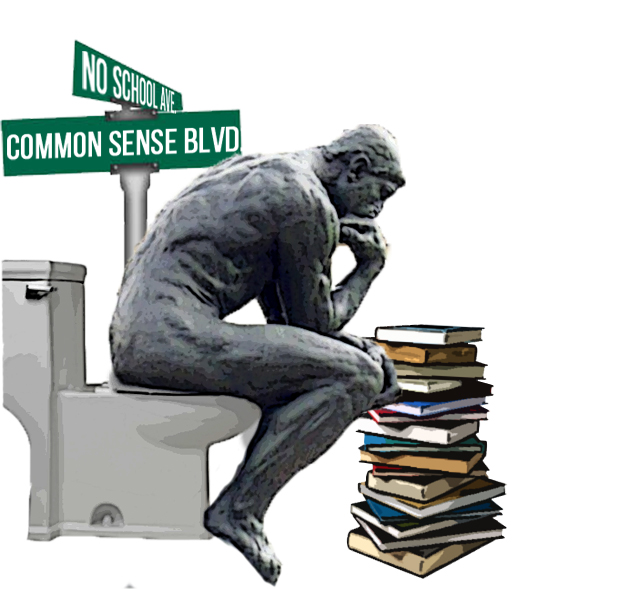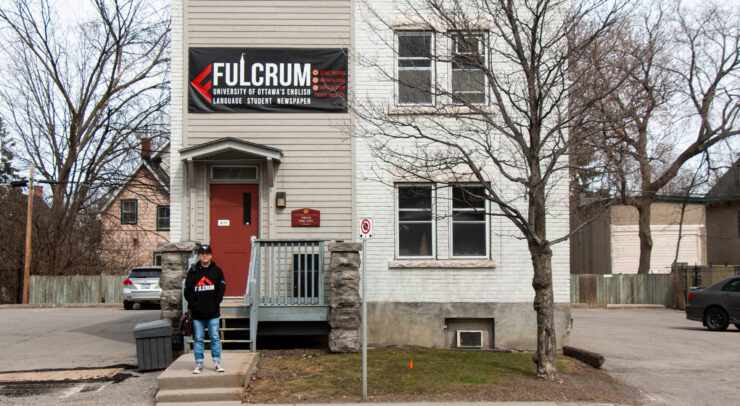How rape culture is rhetorically constructed
We’ve heard definitions, debated its existence, and waded through semantics. Our favourite contrarians have dabbled in denying it. Even velvet-tongued Jian Ghomeshi has fumbled over its framing.
Rape culture, a concept that has gone from merely gripping to ubiquitous overnight, is featured in bus ride and dinner table chats across the country. And rather than spinning in its wake, it’s time to examine its tactics.
On March 27, students huddled into a packed auditorium at Queen’s University, where the Canadian Association for Equality (CAFE) introduced our own University of Ottawa professor Janice Fiamengo, a known anti-feminist and men’s rights advocate. Fiamengo wove a series of misinformed stereotypes about feminism through a rallying cry for “equality.” She did the same the following evening at the U of O, bouncing between two venues before the event had to be ended after someone pulled the fire alarm.
The tactics of rape culture can be hard to recognize, especially as they fold so easily into our common sense and our daily routines. They include sexist clichés, racist metaphors, and the lyrics to that song you’re humming. They also include that troubling office dynamic, that defensive reaction to feminist politics, and that misogynist comment about the woman in a position of power.
They’re socially ignored forms of domestic violence. They include rape itself. They include the repeated refusal to inquire about at least 580 missing and murdered Aboriginal women even as women’s bodies continue to go missing. They include street harassment, “boys will be boys,” and “she was asking for it,” and messages that express the same things in more innocuous-sounding ways.
The men’s rights movement (MRM), of which CAFE and Fiamengo are a part, is feminism’s countermovement. While feminist aims have historically been made richer and more complex by the multiple voices and critiques operating within and alongside the movement, the MRM has pursued one clear aim: to reverse feminist progress in its various forms.
As a feminist scholar, I like to imagine men’s rights activists are on the fringes of the majority opinion. But as we’ve seen in recent months, with a tour of campus lectures and a horrifically misogynist poster campaign that has spread from Alberta to Ontario, their voice is audible.
The MRM’s tactics are not unlike recent anti-choice tactics, which, as the U of O’s associate professor Paul Saurette and PhD candidate Kelly Gordon have argued in their research, involve the co-optation of historically feminist rhetoric for conservative aims. This tactic is particularly dangerous for inquiries into rape culture. Not only does it appeal to the mainstream, but it also invokes equality, rights, and social justice — powerful concepts associated with the advance of progressive values.
Ruben Avila, advisor fellow and board director for CAFE, opened the evening at Queen’s by differentiating feminist scholarship, which is partly responsible for progressive Canadian institutions like the Charter of Rights and Freedoms, from real “academic knowledge.” Denise Fong, CAFE’s outreach director, followed with a call for “true equality and human rights” rooted in “facts and evidence.” She demanded that we, the feminists presumably playing fast and loose with the historical record, stop promoting “ideology and special interest agendas.” These dismissals contribute to rape culture.
Claiming the existence of “social, institutional, and academic misandry” but distinguishing himself from ideologues, Avila unwittingly illustrated the tactics of rape culture — by denying swaths of evidence of institutionalized oppression of women and even attempting to flip the script.
In her recent interview with Ghomeshi, Heather Macdonald, a researcher with the Manhattan Institute, revealed a similar tactic when she denied the prevalence of rape and blamed the rare occurrence of rape on women who drink. Invoking unrelated crime statistics about Detroit, which she dubbed “America’s most violent city,” she swiftly tucked misogyny and inferential racism into her rape denial.
Debates about rape culture tell us many things, not the least of which is that we live in a culture where sexual violence against women is common, and that pointing this out is controversial. The MRM’s rhetorical maneuvers are strategically hidden behind the language of gender equality that we associate with liberal democracy.
The rape culture debate has succeeded at mainstreaming awareness of a violent and destructive part of our culture that we so often perceive as normal. For those of us who have experienced sexual violence — and we are many — this is both a fraught and sanguine moment.
In response to the rise of the MRM on campus, the gender studies department and community of Queen’s released a statement called “What does it mean to be feminist in 2014?” in which they explain, “Feminists in 2014 pay close attention to the ways that sexism, homophobia, racism and poverty hurt, harm and consign to a premature death, millions of people around the world. Feminists today are also committed to supporting the ongoing struggles of communities against different kinds of violence.”
What the Queen’s press release helps us understand is that men’s rights, in fact the livability of every life, are important to the feminist movement. Feminist activists and scholars examine power — who has it, who doesn’t, how it’s enacted, and why it matters.
So, now we’re studying rape culture.





